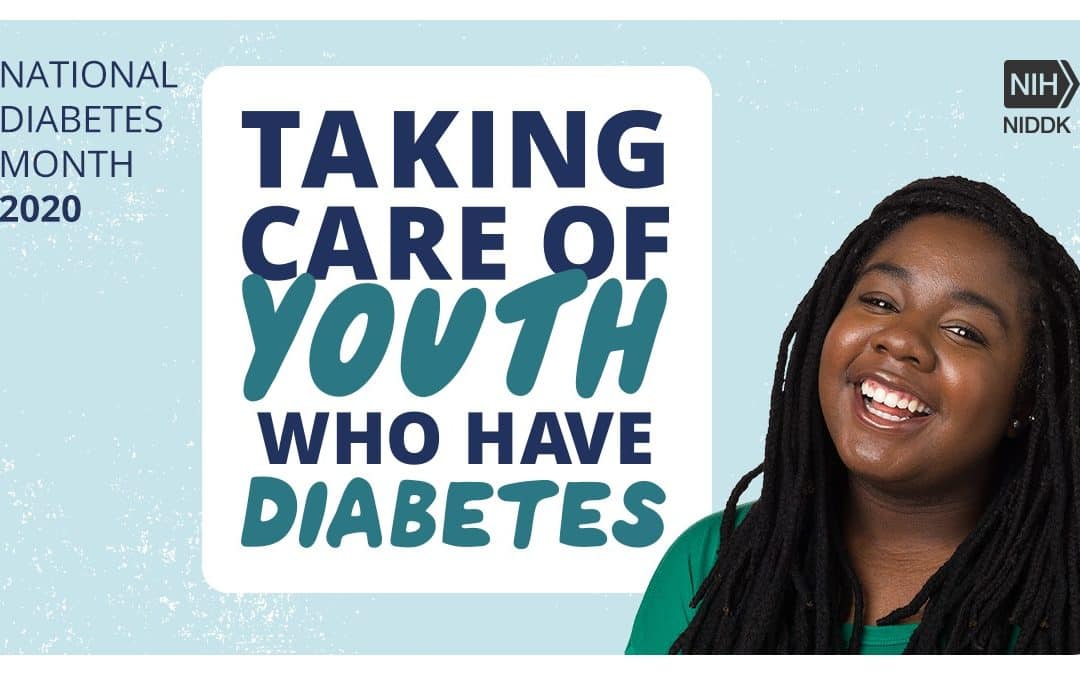National Diabetes Month
November is National Diabetes Month! This is an important time for communities across the country to team up and bring attention to diabetes.
This year’s focus is taking care of youth who have diabetes. As stated by the National Institute of Diabetes, Digestive and Kidney Diseases (NIDDK), Diabetes is one of the most common chronic conditions in school-age youth in the United States, affecting about 193,000 youth under 20 years old. Regardless of their age, our youth needs support and education when it comes to prevention and care.
Tips for Type 2 Diabetes Prevention
- Take the Type 2 Diabetes Risk Test:This is not only an extremely important step for youth, but for adults as well. As explained by the CDC and the ADA, those with diabetes have much higher rates of serious complications and death from COVID-19 than people without diabetes. Going undiagnosed poses great health risks, and this is especially true during a global pandemic. Understanding your risk level can help you make healthy lifestyle changes and ensure you take the proper precautions.
- Encourage and Model Healthy Lifestyles: No matter what age you are, you should exercise often, follow a healthy eating plan, and get 7-8 hours of sleep each night. Living by example and encouraging the youth in your life to life this way too will help set them up for a healthy life. Not smoking, avoiding fad diets, prioritizing mental and physical health, and managing stress levels are all additional factors that contribute to a healthy lifestyle!
Tips for Type 1 and Type 2 Diabetes Care:
- Manage blood glucose levels: Make sure your child or teen takes their medicine as prescribed, at the right time, and the right dose even when they are feeling fine or have reached their blood glucose, blood pressure, and cholesterol goals.
- Stay prepared for emergencies: Be prepared and have a “go-kit.” A basic “go-kit” could include:
- medical supplies and equipment (at least a week’s worth)
- emergency and health care professional contact lists
- a medication list, including doses and dosing schedules, and an allergy list
- Face coverings, hand sanitizer, and disinfecting wipes may also be added to your “go-kit” during a pandemic.
- Monitor for diabetes complications: It is a good idea to get screened yearly for diabetes complications. Early diagnosis and treatment can help reduce risk for heart disease, vision loss, nerve damage, and other related health problems.
- Prioritize mental and physical health: Living a healthy lifestyle is incredibly important when it comes to managing diabetes. You should also encourage the youth in your life to seek mental health support by connecting with others who have diabetes or can help manage the stress that comes with living with diabetes.
For more information on National Diabetes Month as well as to get access to resources for parents, caregivers and youth, visit NIDDK!



